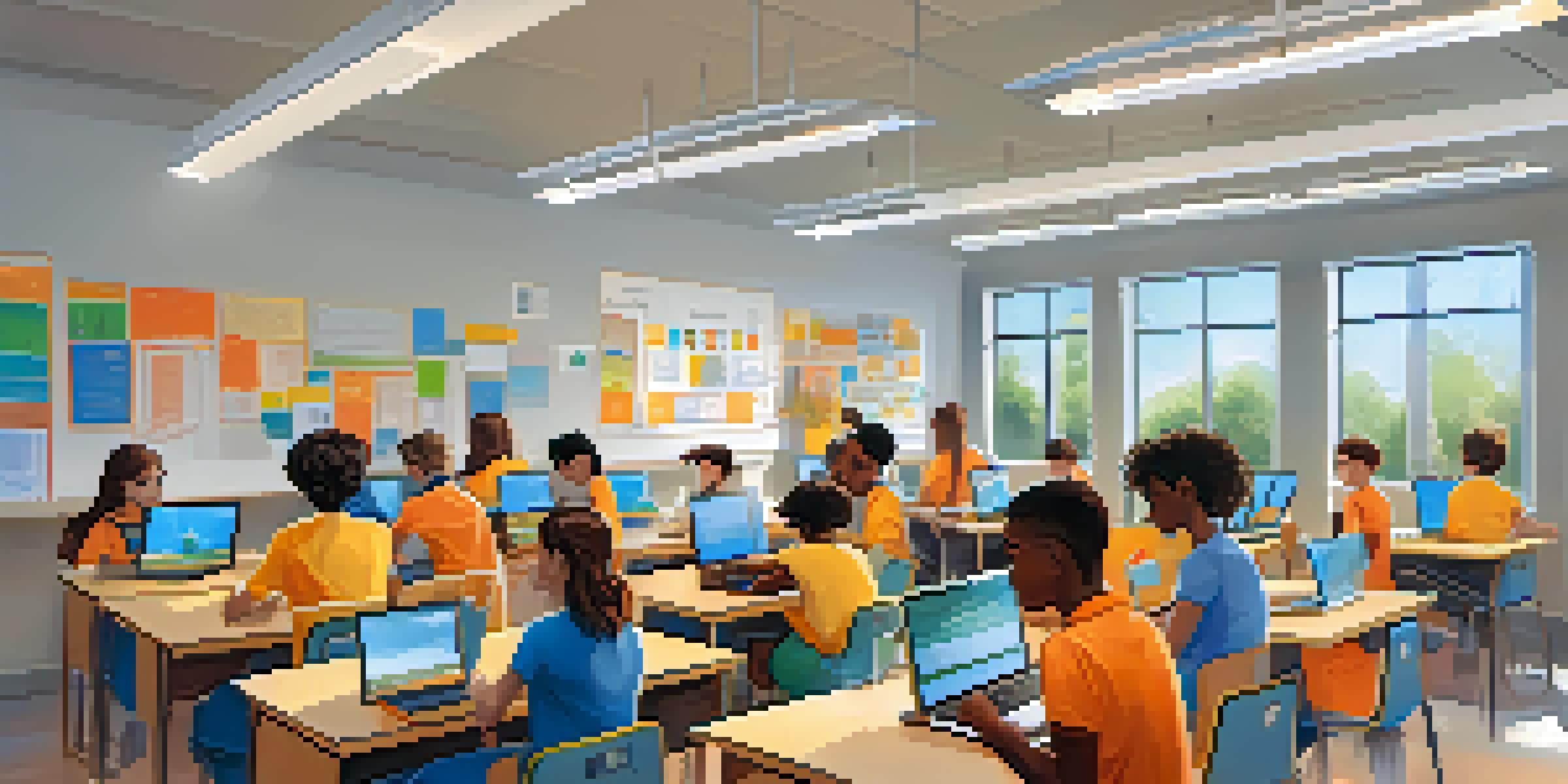The Importance of Digital Citizenship in Blended Learning

What is Digital Citizenship and Why It Matters
Digital citizenship refers to the responsible use of technology, encompassing everything from online etiquette to cybersecurity. In our increasingly digital world, understanding these principles is essential for everyone, particularly students engaged in blended learning environments. With a blend of face-to-face and online education, students must navigate various digital platforms, making digital citizenship an integral part of their educational experience.
The Connection Between Digital Citizenship and Blended Learning
Blended learning combines traditional classroom settings with online components, creating unique opportunities for interaction and learning. However, this mix also introduces challenges, particularly regarding digital behavior and responsibility. By instilling digital citizenship principles, educators can ensure that students are not only consumers of information but also respectful participants in the digital landscape.
Importance of Digital Citizenship
Digital citizenship is essential for students to responsibly navigate online environments, especially in blended learning.
Building Safe Online Communities for Learners
One of the key aspects of digital citizenship is fostering safe online communities. In blended learning, students often collaborate through digital platforms, making it crucial to create respectful and supportive environments. Educators can lead discussions about online safety, encouraging students to share their experiences and learn from one another, ultimately cultivating a culture of respect and inclusivity.
Encouraging Critical Thinking and Media Literacy
Digital citizenship promotes critical thinking and media literacy, skills that are vital in today’s information-rich landscape. In blended learning, students encounter a variety of sources and perspectives; teaching them how to evaluate these critically is essential. By engaging in discussions about credibility, bias, and the importance of reliable information, educators can empower students to navigate the digital world wisely.
Role of Educators in Digital Ethics
Educators are crucial in modeling and promoting digital citizenship, helping students understand their responsibilities online.
The Role of Educators in Promoting Digital Citizenship
Educators play a pivotal role in modeling and promoting digital citizenship within blended learning environments. By demonstrating responsible online behavior and encouraging students to share their thoughts on digital ethics, teachers can set clear expectations. This guidance not only enhances students' learning experiences but also prepares them for their future interactions in the digital world.
Parent and Community Involvement in Digital Citizenship
Incorporating digital citizenship extends beyond the classroom; parents and the community also play a crucial role. Encouraging discussions at home about online behavior and safety can reinforce what students learn in school. Schools can facilitate workshops or resources for parents, creating a united front that supports students in becoming responsible digital citizens.
Community Support for Digital Learning
Involving parents and the community reinforces digital citizenship principles, creating a supportive framework for students.
Assessing Digital Citizenship Skills in Students
Assessing students' digital citizenship skills can be complex but is vital for their holistic development. Educators can use various methods, from reflective essays to group discussions, to gauge understanding. This assessment not only provides insights into students’ digital behaviors but also highlights areas where additional support may be needed.
The Future of Digital Citizenship in Education
As technology continues to evolve, so too will the importance of digital citizenship in education. Preparing students for a future where digital interactions are commonplace is essential. By embedding these principles into blended learning, educators can equip students with the skills they need to thrive in a digitally connected world.